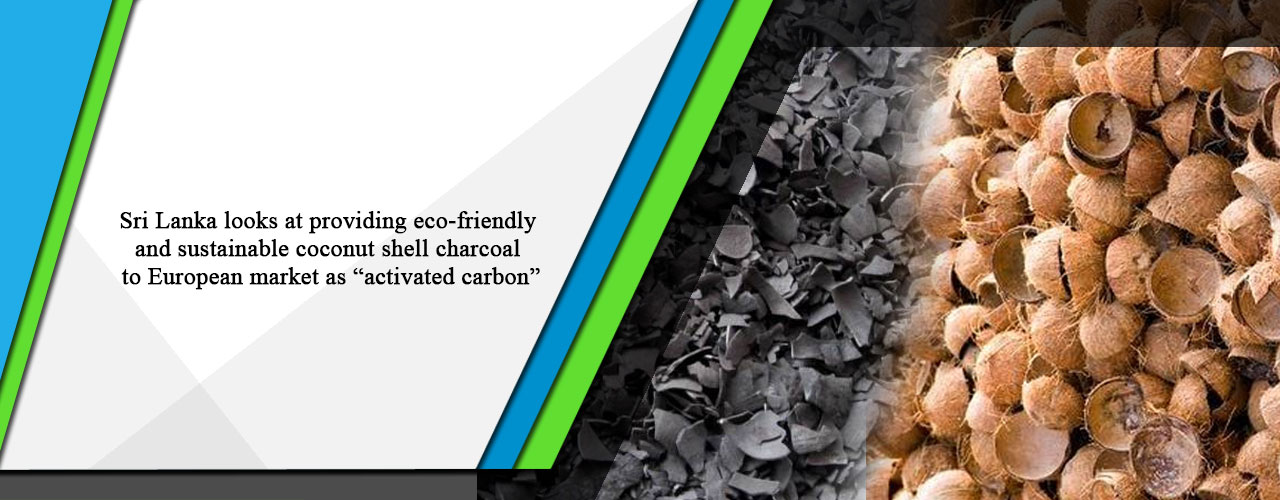Sri Lanka looks at providing eco-friendly and sustainable coconut shell charcoal to European market as “activated carbon”
Sri Lanka’s Coconut Development Authority (CDA) is reportedly in the process of developing a new method of producing eco-friendly and sustainable coconut shell charcoal in hopes of introducing the product to the European market as “activated carbon.”
Although this product has several unique uses such as in the sustenance of humans and also industrial, medical, environmental, agricultural, and fuel storage uses, the CDA claims that activated carbon is still one of the least celebrated elements in the world, according to The Morning news report.
The average global demand for activated carbon amounts to a net mass of 45,308 metric tonnes (MT) which totals US$ 99.6 million in value and the global demand for activated carbon is derived from a total of 54 countries in Europe, Asia, Africa, Asia, Australia, and America.
One of the concerns raised by the CDA, which also led them down this path of innovation, was on the irregular methods of coconut shell charcoal production used in the past that had reportedly involved adding harmful gases such as carbon monoxide and carbon dioxide to the ecosystem.
The CDA has therefore taken measures to create an environmentally friendly product for which there is a high demand in the foreign market that would also allow the CDA to possibly earn three to four times more income, which would ultimately increase foreign inflows to the country.
The CDA has also collaborated with Jacobi Carbon Lanka (Pvt.) Ltd. and Haycarb PLC to accurately transition from the old coconut shell charcoal production methods to an eco-friendly process and product.
Moreover, following a daily activated carbon production of one tonne per day by using three tonnes of raw materials (coconut shells), the CDA is able to cater to the international demand in the activated carbon market, the report further stated.
Considering the average European demand for coconut shell charcoal in 2020, the CDA is aiming to supply an estimated net mass of 3,244 MT, which amounts to US$ 1.5 million in value and the CDA has also highlighted that they will be targeting the Netherlands, Croatia, Germany, UK, France, and Italy for export.
In addition to this, the CDA has further stated that Belgium, Bulgaria, and the Czech Republic in the European Union; Serbia, Albania, Kuwait, and Iraq in the Middle East; Nicaragua; Bangladesh; Mongolia; and Vietnam are targeted for the exportation of this product in the future.
OSL take:
Sri Lanka’s manufacturing and exports sectors have shown a steady growth during the past few months despite facing internal and external challenges due to the global Covid 19 pandemic. Sri Lanka’s manufacturing sector in fact continued operations while adhering to strict health guidelines even during most part of the Covid 19 lockdown. The many trade agreements as well as trade concessions enjoyed by the country have helped the manufacturing and exports sectors. Foreign businesses/investors could therefore confidently explore business opportunities in Sri Lanka’s manufacturing and exports sectors.
| Article Code : | VBS/AT/20210322/Z_4 |

